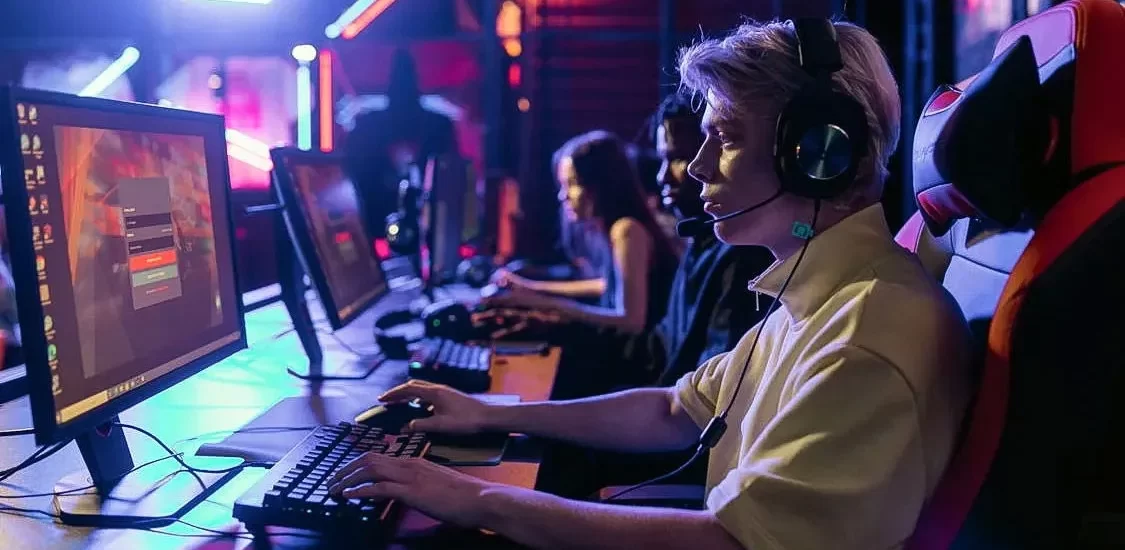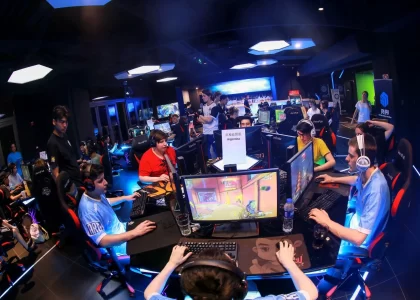In just a few short years, esports has evolved from bedroom LAN parties into a global entertainment industry, with millions of viewers tuning in to watch elite players battle it out in games like VALORANT, Counter-Strike 2, League of Legends, and Dota 2. But as the scene has grown, so too has its commercial potential—and nowhere is that more evident than in the booming sector of esports betting.
No longer confined to the sidelines, esports betting is now a driving force in how fans watch, interact with, and even shape the competitive gaming landscape. Thanks to innovations in data, technology, and engagement tools, placing a wager is no longer just about predicting an outcome—it’s about deepening immersion, enhancing strategy, and monetizing fandom.
Betting as a Second Screen Experience
Gone are the days when watching an esports match meant simply cheering for your favorite team. Today’s fans are engaging on multiple levels, often using betting platforms as a “second screen” to complement the live match stream.
This dual-screen experience enables users to:
-
Track live odds and game data in real time.
-
Place dynamic in-play bets as events unfold.
-
Participate in betting chats, pools, and prediction games with other fans.
-
Analyze pre-match stats, player form, and team compositions like a coach or analyst.
This level of engagement turns a passive viewer into an active participant. Instead of just watching Paper Rex face off against G2, you’re betting on who gets the first kill, how many rounds go into overtime, or whether a surprise pick will turn the tide.
Betting as a Path to Monetizing Fandom
The modern esports fan is digitally native, brand-aware, and highly engaged. Many spend money on in-game items, team merchandise, and premium content. Betting now joins that ecosystem as another monetization channel—not just for the platforms, but for fans themselves.
Consider this: fans already demonstrate deep knowledge of meta shifts, player performance, map win rates, and tournament structure. Esports betting allows them to leverage that expertise—turning game knowledge into potential profit.
It also opens the door for:
-
Fantasy esports leagues with real-money payouts.
-
Reward-based betting systems offering skins, badges, or exclusive content.
-
Prediction contests during major events, often free-to-enter but tied to betting brands.
This symbiosis between game literacy and betting literacy is unique to esports and represents a major opportunity for both platforms and publishers.
The Role of Technology in Esports Betting
At the heart of this revolution is technology. From AI-generated odds to blockchain-powered smart contracts, the tech driving esports betting is some of the most advanced in the gaming world.
Key innovations include:
-
API-integrated live data feeds that power real-time odds for micro-events like kill streaks, objective captures, and economy shifts.
-
AI models that analyze thousands of historical matches to calculate fair odds.
-
Predictive analytics tools for users, showing win probabilities and betting history trends.
-
Blockchain integration for secure, transparent, and borderless transactions.
Some platforms even offer interactive overlays on Twitch or YouTube that let viewers place bets, track predictions, and unlock bonuses without leaving the stream.
Challenges and Growing Pains
Despite its success, the esports betting industry faces significant challenges that must be addressed for it to sustain growth.
-
Age Verification & Responsible Gaming
With many esports fans under 18, strict age-gating and user protection tools are essential. Responsible gambling features like deposit limits, time reminders, and self-exclusion must be prioritized. -
Game Publisher Relationships
Not all publishers are on board with gambling. While Riot Games has cautiously embraced data partnerships, others like Blizzard have taken a stricter stance. Collaboration between stakeholders is key to ensure integrity and fair access. -
Match Integrity
Esports’ relatively young infrastructure means more risk of match-fixing, especially in tier-2 events. Betting companies are now working with regulators and teams to flag suspicious patterns and protect the scene. -
Legal Grey Zones
Regulation varies greatly across regions. In the U.K. and parts of Europe, betting is well-regulated. In the U.S., only certain states permit esports betting. Globally, platforms must navigate a shifting legal landscape.
Betting’s Future in the Esports Ecosystem
So what does the future hold?
Expect esports betting to become more embedded within the esports experience itself. Rather than being a separate platform, it will likely become part of the content delivery—integrated into tournament broadcasts, fan portals, and game launchers.
Look out for:
-
Micro-betting at scale: wagers on next kill, ability usage, or map rotations.
-
Augmented reality overlays during live events.
-
Betting-enhanced fantasy leagues tied directly to official team brands.
-
NFT-based wagers and in-game prediction systems backed by blockchain.
In the long term, esports betting may evolve from a “bonus activity” into a core revenue stream for the industry—on par with sponsorships, media rights, and merchandising.
Conclusion: Betting Is No Longer a Side Game
Esports betting is not just growing—it’s evolving. No longer an outsider to the esports world, it’s becoming a vital part of how fans experience matches, how organizations engage audiences, and how technology pushes the boundaries of what interactive entertainment can be.
For the modern esports fan, betting isn’t just about luck—it’s about knowledge, timing, intuition, and connection. It’s a strategic extension of fandom, and it’s here to stay.































